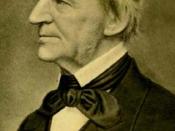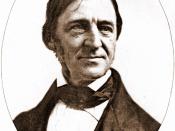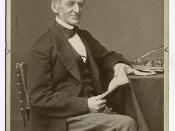Hollywood Turns Transcendental
Transcendentalism is a way of life. It is defined as "the transcending, or going beyond, empiricism, and ascertaining the fundamentals and principles of human knowledge." Discovering these principles and fundamentals is the goal of American Romantics Henry David Thoreau and Ralph Waldo Emerson, and also includes other historical icons like Martin Luther King, Jr., and Mohandas K. Gandhi. Transcendentalist values hold firm in their writings and influence mainstream media, which uses these messages to captivate an audience of bewildered young minds. The transcendentalist values concerning non-conformity, individualism, and passive resistance evident in the civil rights movements and original pieces written by the American romantics of the 17th century are visible in such Hollywood blockbusters as The Dead Poets Society and Gandhi.
In the 1989 Hollywood manifestation of transcendentalism, John Keating (Robin Williams) is an ambitious young private school teacher who hopes to direct his students down a simplistic lane.
Non-conformist values are exemplified when Keating takes his students to the courtyard and tells them to walk about at their own pace. In a short period of time, but not immediately, the boys fall in line and begin to take the same stride. Meanwhile the non-participants begin to clap a rhythm for the striders to follow. With this Keating stops the assembly in order to verbalize his point. "Thank you, gentlemen. If you noticed, everyone started off with their own stride, their own pace. Mr. Pitts, taking his time. He knew he'd get there one day. Mr. Cameron, you could see him thinking, "Is this right? It might be right. It might be right. I know that. Maybe not. I don't know." Mr. Overstreet, driven by deeper force. Yes. We know that. All right. Now, I didn't bring them up here to ridicule them. I brought them...


